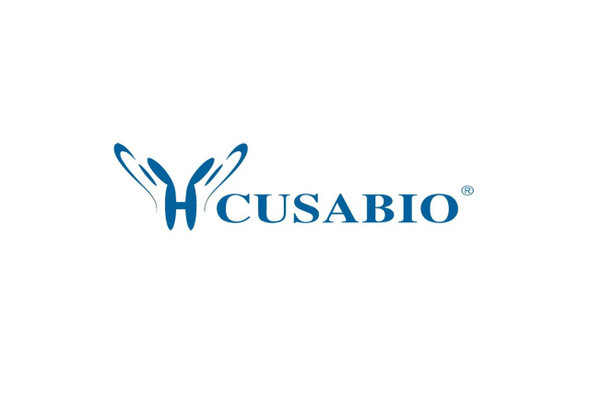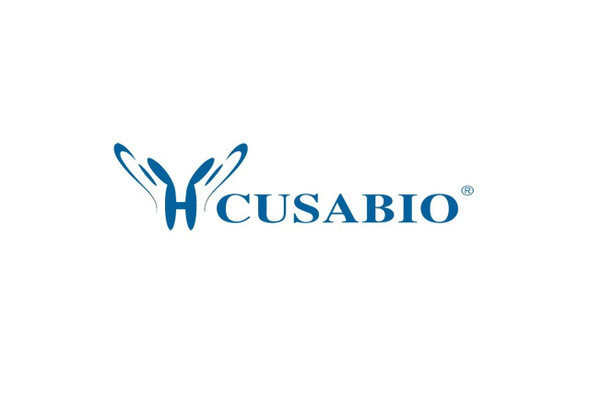Cusabio Human Recombinants
Recombinant Human Muscle, skeletal receptor tyrosine-protein kinase (MUSK), partial | CSB-YP015241HU
- SKU:
- CSB-YP015241HU
- Availability:
- 3 - 7 Working Days
Description
Recombinant Human Muscle, skeletal receptor tyrosine-protein kinase (MUSK), partial | CSB-YP015241HU | Cusabio
Alternative Name(s): Muscle-specific tyrosine-protein kinase receptor ;MuSK ;Muscle-specific kinase receptor
Gene Names: MUSK
Research Areas: Signal Transduction
Organism: Homo sapiens (Human)
AA Sequence: LPKAPVITTPLETVDALVEEVATFMCAVESYPQPEISWTRNKILIKLFDTRYSIRENGQLLTILSVEDSDDGIYCCTANNGVGGAVESCGALQVKMKPKITRPPINVKIIEGLKAVLPCTTMGNPKPSVSWIKGDSPLRENSRIAVLESGSLRIHNVQKEDAGQYRCVAKNSLGTAYSKVVKLEVEEESEPEQDTKVFARILRAPESHNVTFGSFVTLHCTATGIPVPTITWIENGNAVSSGSIQESVKDRVIDSRLQLFITKPGLYTCIATNKHGEKFSTAKAAATISIAEWREYCLAVKELFCAKEWLVMEEKTHRGLYRSEMHLLSVPECSKLPSMHWDPTACARLPHLAFPPMTSSKPSVDIPNLPSSSSSSFSVSPTYSMTVIISIMSSFAIFVLLTITTLYCCRRRKQWKNKKRESAAVTLTTLPSELLLDRLHPNPMYQRMPLLLNPKLLSLEYPRNNIEYVRDI
Source: Yeast
Tag Info: N-terminal 6xHis-tagged
Expression Region: 24-495aa
Sequence Info: partial of Isoform 2
MW: 53.8 kDa
Purity: Greater than 90% as determined by SDS-PAGE.
Relevance: Receptor tyrosine kinase which plays a central role in the formation and the maintenance of the neuromuscular junction (NMJ), the synapse between the motor neuron and the skeletal muscle . Recruitment of AGRIN by LRP4 to the MUSK signaling complex induces phosphorylation and activation of MUSK, the kinase of the complex. The activation of MUSK in myotubes regulates the formation of NMJs through the regulation of different processes including the specific expression of genes in subsynaptic nuclei, the reorganization of the actin cytoskeleton and the clustering of the acetylcholine receptors (AChR) in the postsynaptic mbrane. May regulate AChR phosphorylation and clustering through activation of ABL1 and Src family kinases which in turn regulate MUSK. DVL1 and PAK1 that form a ternary complex with MUSK are also important for MUSK-dependent regulation of AChR clustering. May positively regulate Rho family GTPases through FNTA. Mediates the phosphorylation of FNTA which promotes prenylation, recruitment to mbranes and activation of RAC1 a regulator of the actin cytoskeleton and of gene expression. Other effectors of the MUSK signaling include DNAJA3 which functions downstream of MUSK. May also play a role within the central nervous syst by mediating cholinergic responses, synaptic plasticity and mory formation .1 Publication
Reference: DNA sequence and analysis of human chromosome 9.Humphray S.J., Oliver K., Hunt A.R., Plumb R.W., Loveland J.E., Howe K.L., Andrews T.D., Searle S., Hunt S.E., Scott C.E., Jones M.C., Ainscough R., Almeida J.P., Ambrose K.D., Ashwell R.I.S., Babbage A.K., Babbage S., Bagguley C.L. , Bailey J., Banerjee R., Barker D.J., Barlow K.F., Bates K., Beasley H., Beasley O., Bird C.P., Bray-Allen S., Brown A.J., Brown J.Y., Burford D., Burrill W., Burton J., Carder C., Carter N.P., Chapman J.C., Chen Y., Clarke G., Clark S.Y., Clee C.M., Clegg S., Collier R.E., Corby N., Crosier M., Cummings A.T., Davies J., Dhami P., Dunn M., Dutta I., Dyer L.W., Earthrowl M.E., Faulkner L., Fleming C.J., Frankish A., Frankland J.A., French L., Fricker D.G., Garner P., Garnett J., Ghori J., Gilbert J.G.R., Glison C., Grafham D.V., Gribble S., Griffiths C., Griffiths-Jones S., Grocock R., Guy J., Hall R.E., Hammond S., Harley J.L., Harrison E.S.I., Hart E.A., Heath P.D., Henderson C.D., Hopkins B.L., Howard P.J., Howden P.J., Huckle E., Johnson C., Johnson D., Joy A.A., Kay M., Keenan S., Kershaw J.K., Kimberley A.M., King A., Knights A., Laird G.K., Langford C., Lawlor S., Leongamornlert D.A., Leversha M., Lloyd C., Lloyd D.M., Lovell J., Martin S., Mashreghi-Mohammadi M., Matthews L., McLaren S., McLay K.E., McMurray A., Milne S., Nickerson T., Nisbett J., Nordsiek G., Pearce A.V., Peck A.I., Porter K.M., Pandian R., Pelan S., Phillimore B., Povey S., Ramsey Y., Rand V., Scharfe M., Sehra H.K., Shownkeen R., Sims S.K., Skuce C.D., Smith M., Steward C.A., Swarbreck D., Sycamore N., Tester J., Thorpe A., Tracey A., Tromans A., Thomas D.W., Wall M., Wallis J.M., West A.P., Whitehead S.L., Willey D.L., Williams S.A., Wilming L., Wray P.W., Young L., Ashurst J.L., Coulson A., Blocker H., Durbin R.M., Sulston J.E., Hubbard T., Jackson M.J., Bentley D.R., Beck S., Rogers J., Dunham I.Nature 429:369-374(2004)
Storage: The shelf life is related to many factors, storage state, buffer ingredients, storage temperature and the stability of the protein itself. Generally, the shelf life of liquid form is 6 months at -20?/-80?. The shelf life of lyophilized form is 12 months at -20?/-80?.
Notes: Repeated freezing and thawing is not recommended. Store working aliquots at 4? for up to one week.
Function: Receptor tyrosine kinase which plays a central role in the formation and the maintenance of the neuromuscular junction (NMJ), the synapse between the motor neuron and the skeletal muscle
Involvement in disease: Myasthenic syndrome, congenital, 9, associated with acetylcholine receptor deficiency (CMS9); Fetal akinesia deformation sequence (FADS)
Subcellular Location: Cell junction, synapse, postsynaptic cell membrane, Single-pass type I membrane protein
Protein Families: Protein kinase superfamily, Tyr protein kinase family
Tissue Specificity:
Paythway:
Form: Liquid or Lyophilized powder
Buffer: If the delivery form is liquid, the default storage buffer is Tris/PBS-based buffer, 5%-50% glycerol. If the delivery form is lyophilized powder, the buffer before lyophilization is Tris/PBS-based buffer, 6% Trehalose, pH 8.0.
Reconstitution: We recommend that this vial be briefly centrifuged prior to opening to bring the contents to the bottom. Please reconstitute protein in deionized sterile water to a concentration of 0.1-1.0 mg/mL.We recommend to add 5-50% of glycerol (final concentration) and aliquot for long-term storage at -20?/-80?. Our default final concentration of glycerol is 50%. Customers could use it as reference.
Uniprot ID: O15146
HGNC Database Link: HGNC
UniGene Database Link: UniGene
KEGG Database Link: KEGG
STRING Database Link: STRING
OMIM Database Link: OMIM









